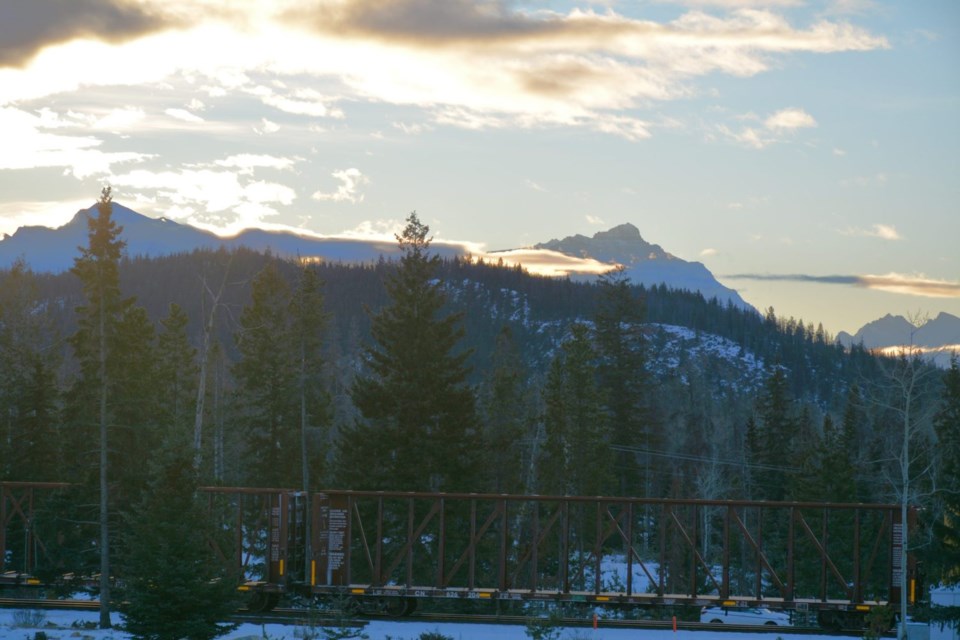Scott Hayes | [email protected]
Local Journalism Initiative Reporter
It’s going to be a warmer winter than normal, according to Environment and Climate Change Canada (ECCC) in its winter seasonal outlook, released on Dec. 1.
“El Niño conditions, which contributed to extreme global temperatures during the summer and autumn of 2023, are expected to continue through this winter season,” the press release states.
Alysa Pederson, ECCC meteorologist, said those El Niño conditions will be comparable to what Jasper saw in 1997 and 2015 with respect to how strong it is expected to be through January 2024.
“What we expect it to do is give us this big blocking ridge pattern. Through the season, we're going to be coming in at above normal temperatures, and then, of course, below normal precipitation,” she said.
“It doesn't look to be a very good snow year.”
Data obtained from the ECCC’s weather page for Jasper shows that there has only been 23.7 mm of precipitation since the start of November. That data does not show how much came not frozen but in liquid form during a rainfall early last week.
That was a really good rain event, Pederson said, which left this park and then pulled south to Banff. The combination of the liquid over the frozen ground created challenging driving conditions on the roads and highways.
While she didn’t have information on what average precipitation is for Jasper, she said Banff’s figures would be comparable. She confirmed that Banff is usually at 33 mm for total precipitation for this time of year, most of which would be snow.
If you compare that 33 mm to Jasper’s current 23.7 mm (as of Monday), that calculates to our precipitation level being approximately 30 per cent below average.
The British Columbia River Forecast Centre indicates that levels (for mountain ranges in the southeast of the province) are at about 50 per cent of what the normal is for the 1991 to 2020 period. That information is representative of conditions for Jasper National Park as well.
The press release noted that a provisional report from the UN’s World Meteorological Organization confirmed that 2023 is set to be the warmest on record, with global temperatures rising 1.4 C above pre-industrial levels. Climate change is not only making the world hotter, but it is also affecting the frequency, duration and intensity of extreme weather everywhere, including this country.
“Canada is warming at roughly double the global rate, and even more in the north, which will lead to more damaging weather events,” it said.
Despite the expectation of a relatively warm season, there will still be severe weather in various forms, such as snow, wind, and freezing rain.
“Canadians are urged to regularly monitor weather forecasts, take all winter weather alerts seriously, and get prepared for winter weather events by developing an emergency plan or adjusting their travel plans,” it said.
Canadians can download the WeatherCAN app to receive weather alert notifications for anywhere in the country.
The latest forecasts and severe weather warnings are available through Environment and Climate Change Canada’s weather website, the WeatherCAN app (available for Android and iOS devices), Weatheradio and Hello Weather (1-833-794-3556).




